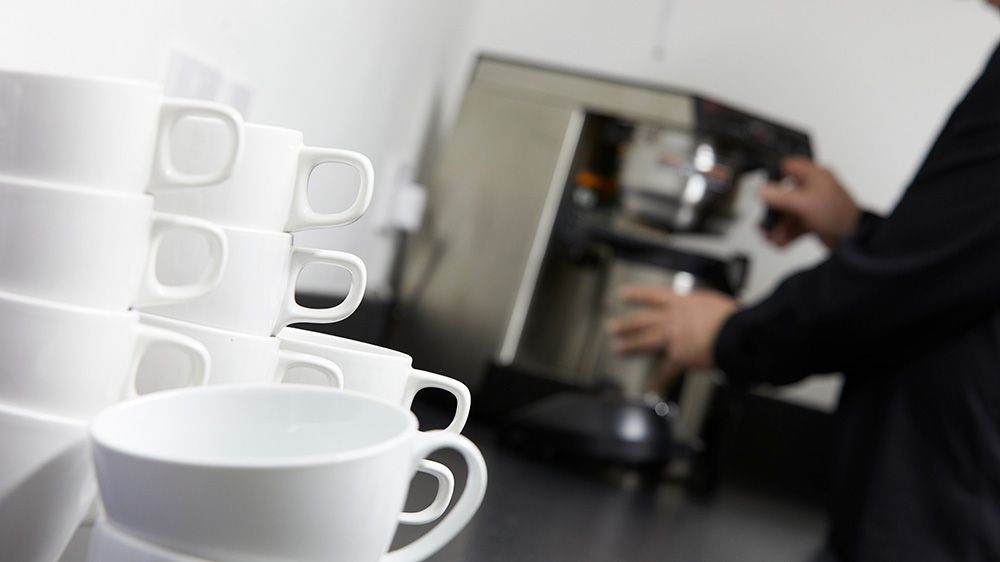15 Key questions to ask before choosing an office coffee machine
Lily Hedley | September 22, 2025

When evaluating office coffee machines, ask these practical questions to make sure the machine and supplier will meet your team’s needs now and as you grow.
1. What’s the daily capacity of the machine?
Clarify how many cups per day the machine can realistically produce without compromising quality or reliability. Factor in average cups per person and compare this to current usage to make sure the machine can keep up. The average UK adult drinks around 2 cups a day.
2. What kind of drinks can it make?
Espresso, cappuccino, flat white, oat milk lattes. Check whether the machine supports the team’s preferred drinks and any alternative milk options.
3. How much space does it need?
Assess whether you have the right countertop footprint. Consider clearance for refilling beans and water, and space for water and waste pipes.
4. What’s the total cost of ownership?
Consider rental or purchase price, service plans, water filters, milk, beans, electricity usage and cleaning products when comparing options.
5. How easy is it to clean and maintain?
Facilities managers need to know how long routines take and whether the process is intuitive or labour intensive. Check for available tutorials or quick guides.
6. Is there a service plan available?
Ask what is included and how quickly issues can be resolved if the machine goes down. Find out how often routine visits occur and whether emergency callouts incur extra charges. Check whether parts such as filters or sensors are included.
7. What’s the expected lifespan?
In most cases lifespan will exceed your contract, but ask about termination terms so you know what to expect at the end of the agreement.

Discover more: Energy usage in office coffee machines
8. What are the coffee options?
Ask whether the supplier recommends a specific coffee for the machine and whether they offer their own line of coffees. If sustainability matters, use this opportunity to ask about sourcing.
9. Can it grow with the business?
Ask whether your contract allows you to scale up or down so you can upgrade to a larger capacity machine if the team grows.
10. What support and training is provided?
Check whether staff receive onboarding, training on cleaning routines and a clear contact for support.
11. What’s the energy and water usage?
Request the average energy and water usage figures so you can assess running costs and environmental impact.
12. What are other customers saying?
Case studies or testimonials can give confidence that the supplier delivers good service. Check review platforms such as Trustpilot or Reviews.io.
13. Are inclusive features available?
Ask what the supplier can do to support dietary needs and accessibility. Many suppliers offer solutions that comply with the Disability Discrimination Act.
14. What after sales support is available?
Find out how to access maintenance, whether there is a customer service phone number and if online resources exist for troubleshooting.
15. What is the customer journey like?
Understand what happens at each stage of the customer journey. Knowing this in advance helps you plan resources, set timelines and keep operations running smoothly.